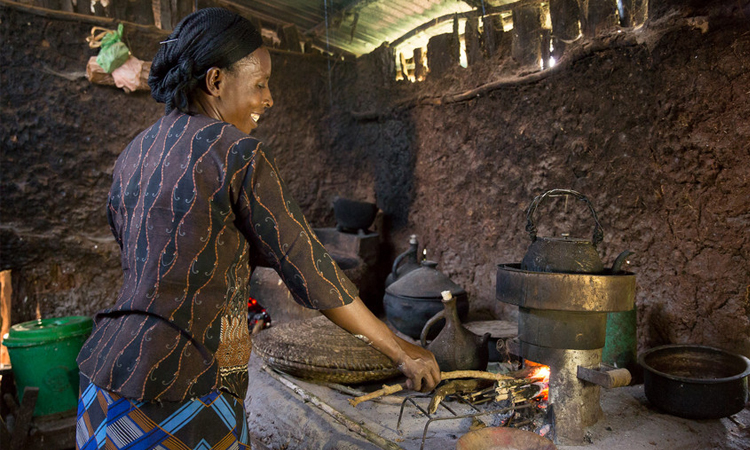Women Fairtrade coffee co-operative members from Ethiopia have been the first to earn carbon credits from clean cooking.
The women, who traditionally spend two or three hours every morning collecting wood for cooking over an open fire, have to deal with the resulting health issues, such as burns, coughs and eye irritation.
Smoke from the fires causes pollution locally, and the wood-gathering results in deforestation, damaging the soil and increasing the chance of harmful emissions.
But now energy efficient cook stoves, distributed to 20,000 member households by the Oromia Farmers Coffee Cooperative Union, have revolutionised the morning routine, cut carbon emissions, reduced deforestation and provided health benefits.
They have also earned the co-operative € 212,500 (£192,000) from the sale of the carbon credits to companies and individuals looking to make a positive impact on the climate and reduce their carbon footprint.
In 2016, Oromia Coffee Farmers’ Cooperative Union registered the Cookstove Project under the Gold Standard carbon credit program.
That made the project eligible to be certified under the Fairtrade Climate Standard and earn Fairtrade Carbon Credits, and made it possible for the co-op to sell the credits on.
The co-operative also earned € 25,000 (£22,600) in Fairtrade Premium, an extra payment which producers use to improve the social, economic and environmental conditions for the community.
The money will be used to expand the co-operative among the coffee growing communities in Eastern and Southern Ethiopia, where members of the Oromia Coffee Farmers’ Co-operative Union are based.
ENDS
For more information, case studies, to arrange interviews or ask about images, please contact sue.royal@fairtrade.org.uk
About Fairtrade
The international Fairtrade system exists to end poverty through trade. The Fairtrade Foundation is an independent certification body and NGO which licenses the use of the FAIRTRADE Mark on more than 6,000 products which meet its rigorous social, economic and environmental standards. This independent label signifies to consumers that farmers and workers across 75 developing countries are getting a better deal from trade.
Today, more than 1.6 million people who work hard to produce coffee, tea, cocoa, bananas, wines, flowers, cotton, gold and many other products benefit from Fairtrade, which campaigns for as well as enables a fairer system of global trade.
Beyond certification, the Fairtrade Foundation is deepening its impact by delivering specialist programmes to help disadvantaged communities boost productivity in the face of challenges such as climate change.
